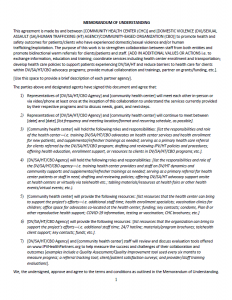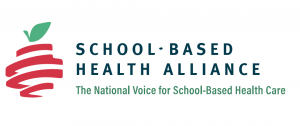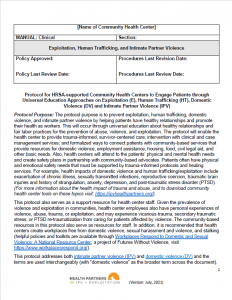
Sample Memorandum of Understanding
Description: This adaptable Memorandum of Understanding (MOU) includes recommendations for building and sustaining health center and domestic violence program partnerships. Download Memorándum de Entendimiento o Acuerdo





